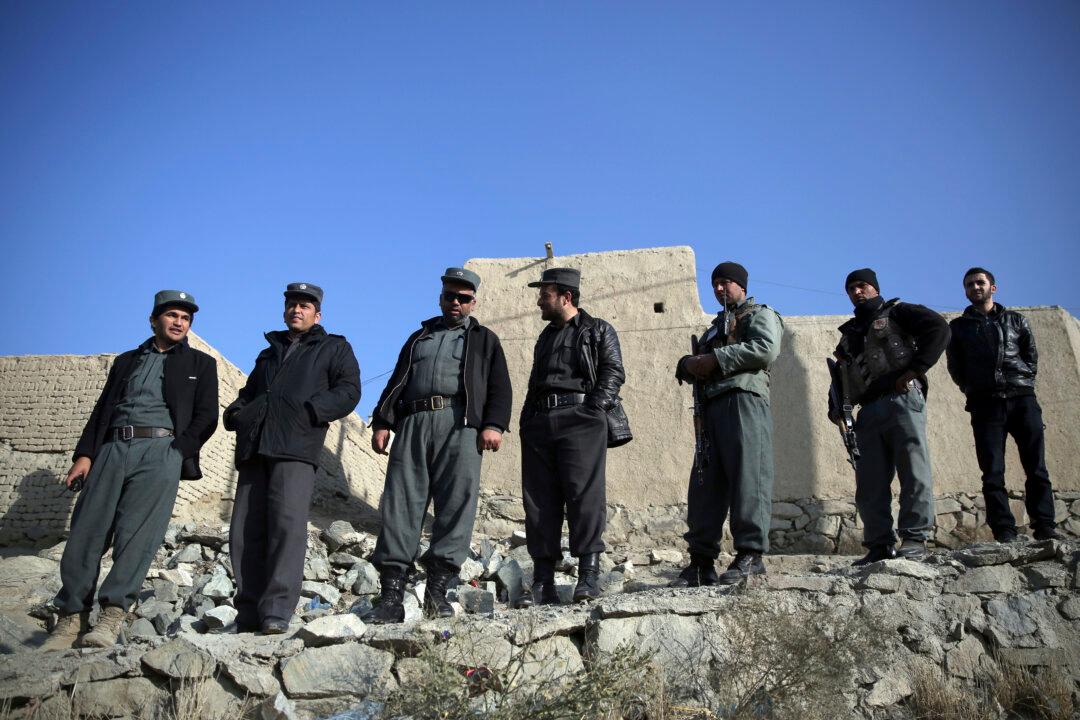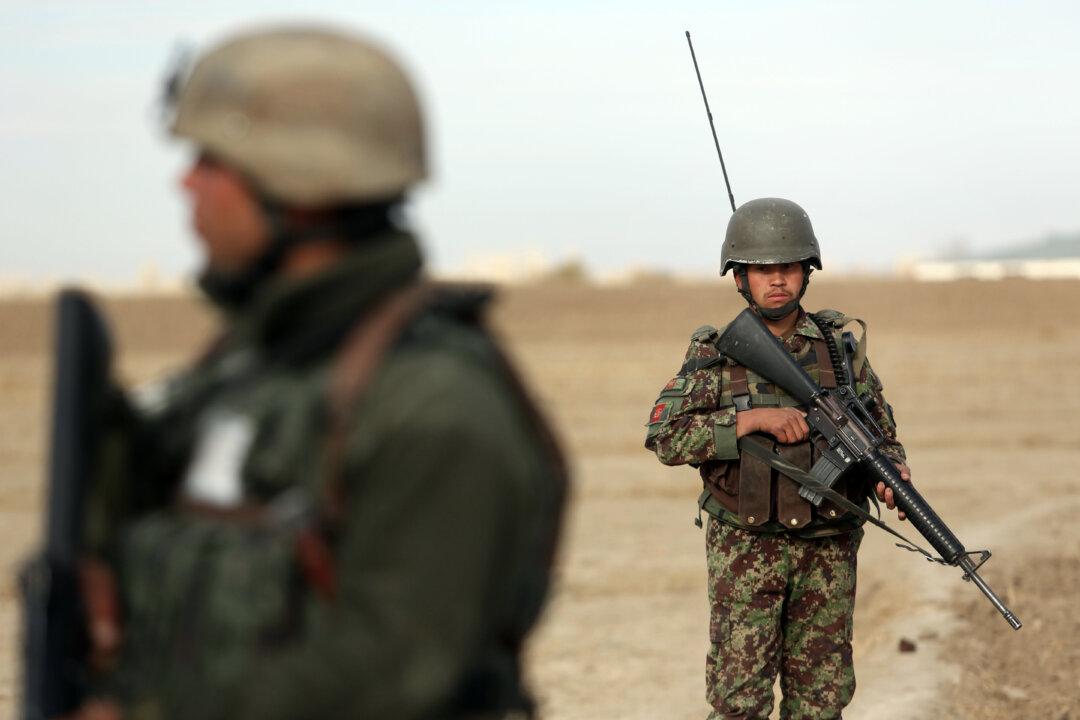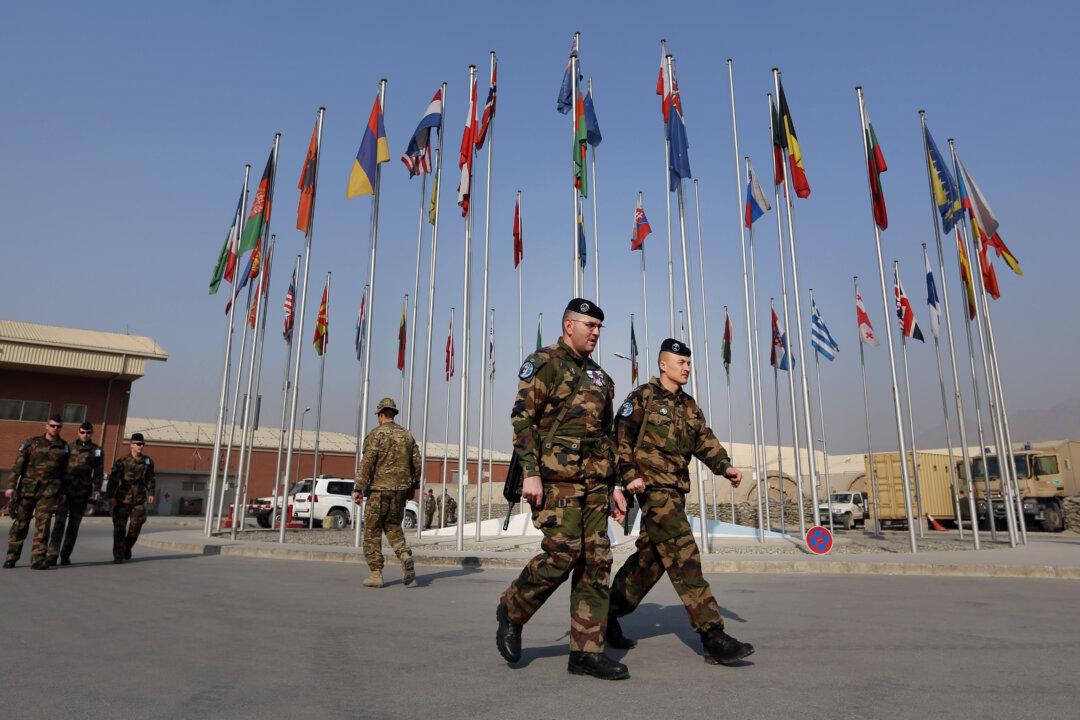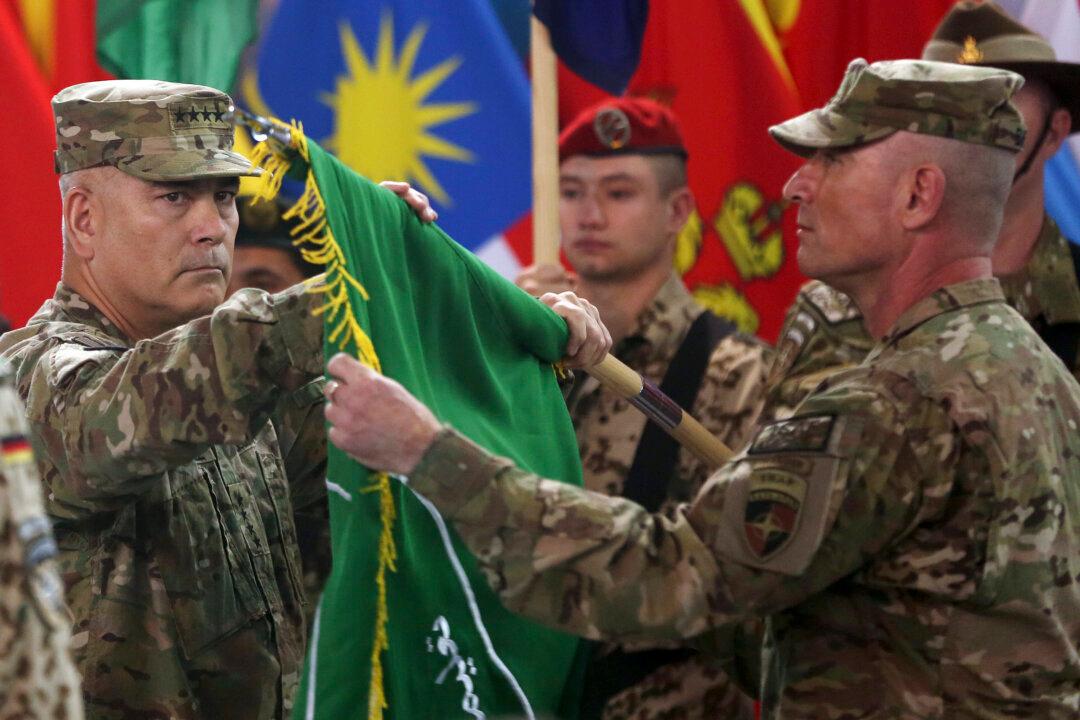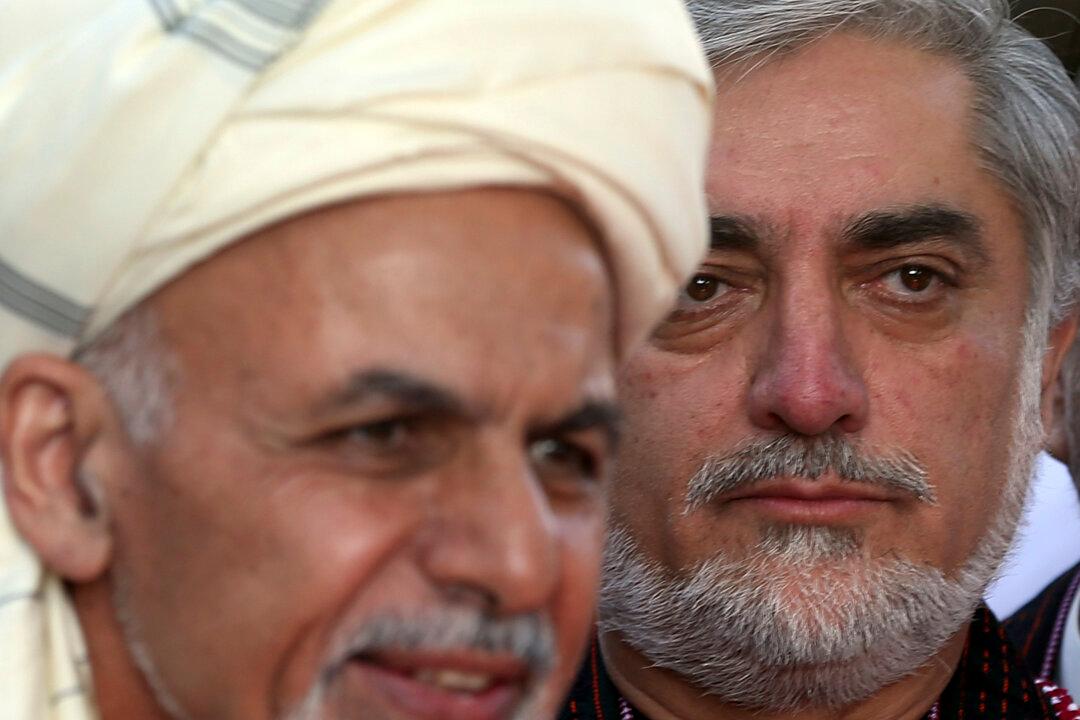KABUL, Afghanistan—When brothers Amir and Mosha Jan joined Afghanistan’s police two years ago they believed that their patriotic duty was more important than obeying their father, who did not want his only sons joining the ranks of a police force on the front lines of the war against the Taliban.
The father’s worst fears came true earlier this year, when gunmen on a motorcycle opened fire on the two brothers as they patrolled the streets of the one-time Taliban capital Kandahar. “Two Taliban on a motorcycle started firing at us,” Amir, 25, said. “My brother was shot dead on the spot.” Mosha was 23 years old.
As U.S. and international combat troops leave Afghanistan after more than 13 years fighting the Taliban, Afghan policemen are dying in record numbers as they perform dangerous tasks usually reserved for the military, according to the head of the European-funded mission to train the police force.

